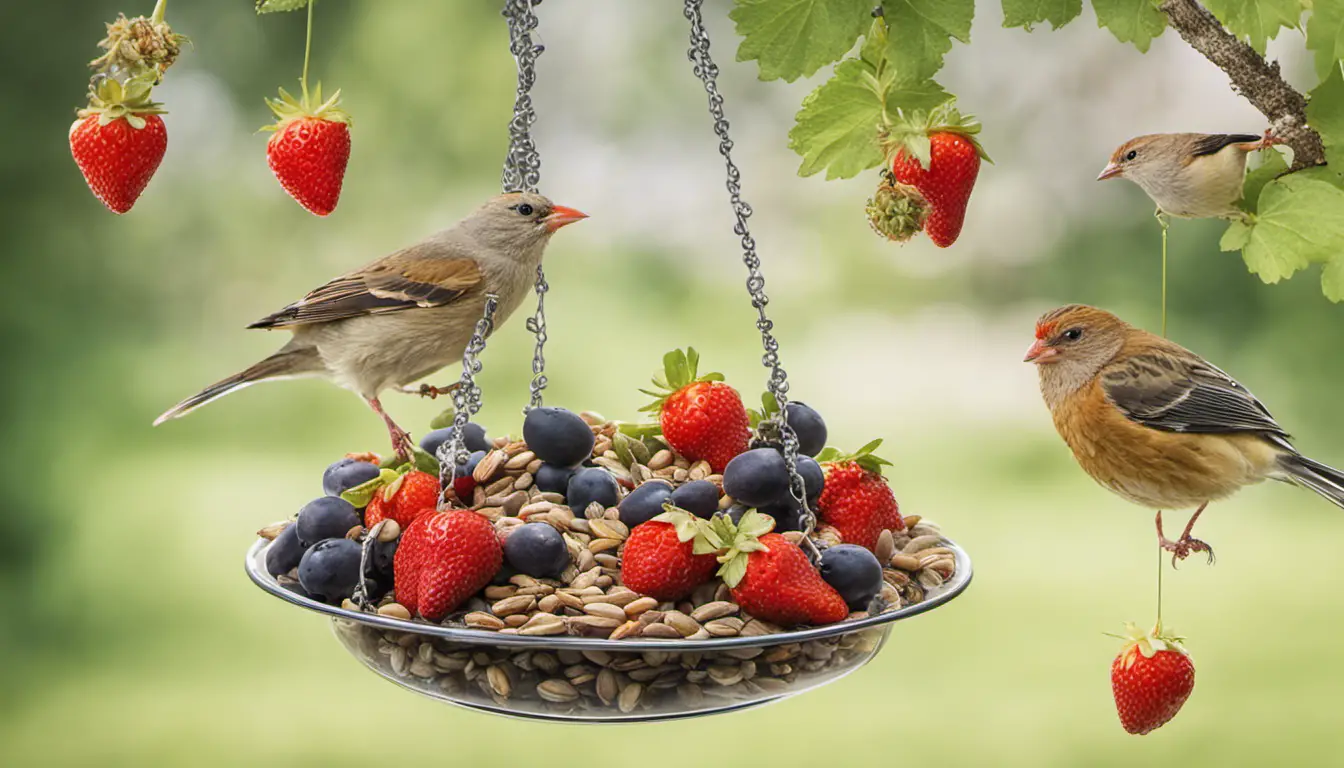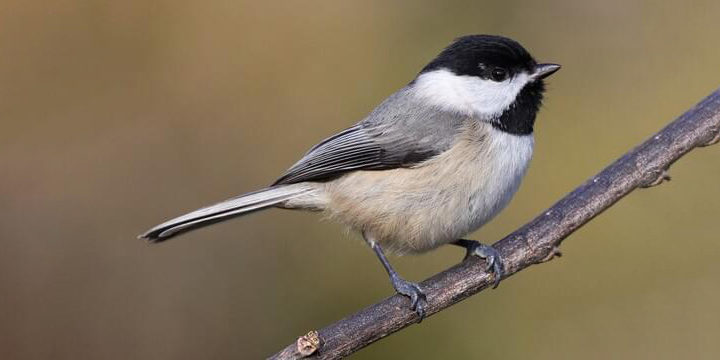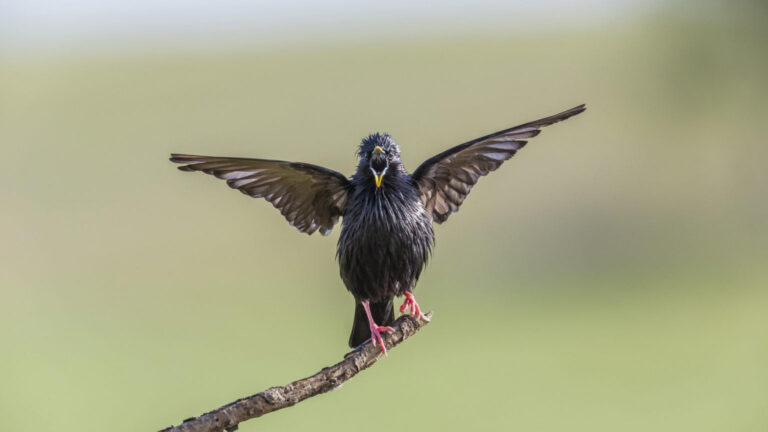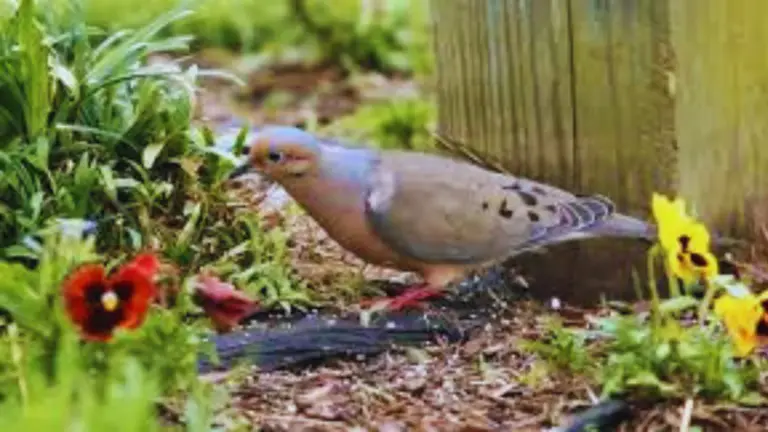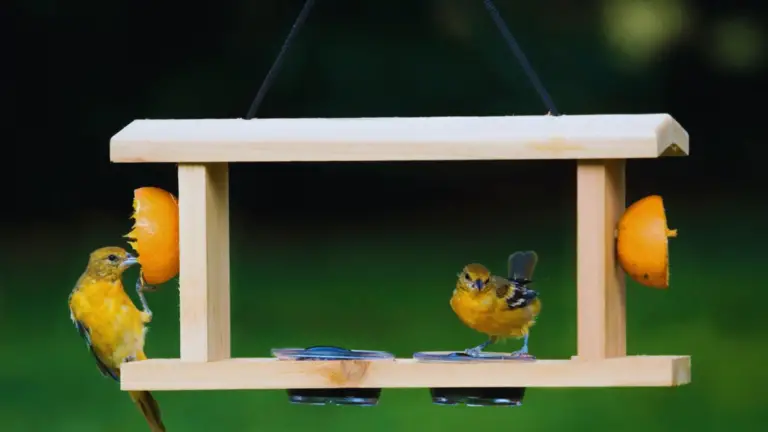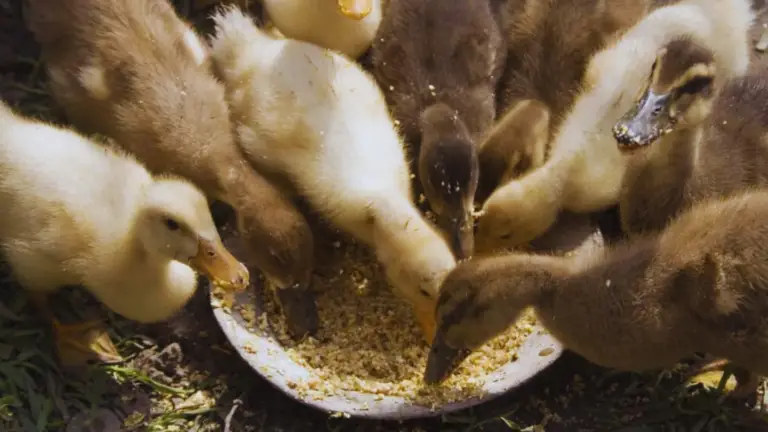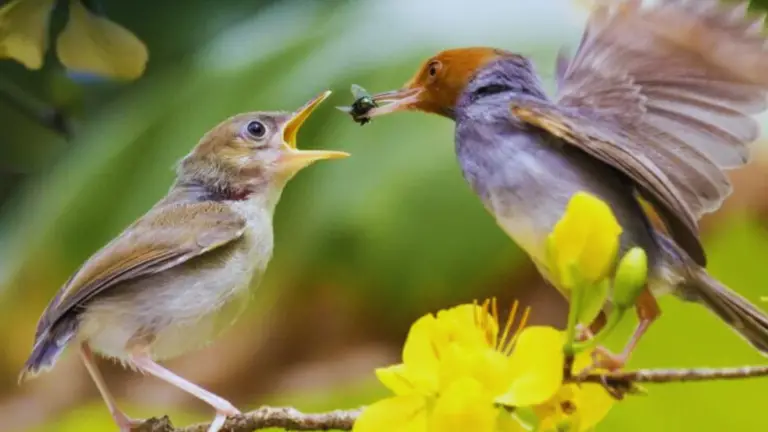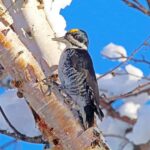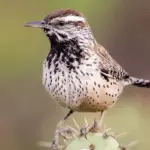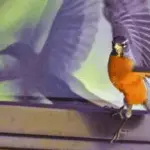Hey there, bird enthusiasts! Are you ready to dive into the delectable world of finches cuisine? Well, get ready to tantalize your taste buds, because we’ve got the ultimate gourmet guide to satisfy those finicky appetites. What do finches eat? Discover the preferred diet of finches. Learn about their favorite foods, from seeds and fruits to insects and nectar.
In this article, we’ll uncover the secrets of what finches love to eat and how to keep them happy and healthy. You may be wondering, ‘What on earth could these tiny birds possibly be craving?’ Well, prepare to be amazed as we explore the diverse diet of these feathered connoisseurs.
From the staple of seeds to the mouthwatering freshness of fruits and vegetables, we’ll reveal the key ingredients to keep those beaks busy and satisfied. But wait, there’s more! We’ll also dish out some protein-rich foods that are essential for finch health, as well as harmful foods and substances to avoid.
Plus, we’ve got some expert feeding tips and techniques to troubleshoot any finch feeding issues you may encounter. So, grab a seat and get ready to embark on a culinary adventure with our feathery friends. Let’s discover what makes their taste buds sing and keep them chirping with delight!
Key Takeaways
- Finches have a varied diet consisting of seeds, fruits, and insects.
- It is important to provide a variety of seed options, such as nyjer, sunflower, and millet seeds.
- Fresh fruits and vegetables are essential for finch nutrition and should be introduced gradually.
- Protein sources like insects, mealworms, and boiled eggs are important for finch health.
Introduction to Finch Cuisine
If you’re wondering what finches eat, you’re in for a delightful journey into the world of finch cuisine. These small, colorful birds have quite finicky appetites, and their gourmet preferences are sure to surprise you.
Finch cuisine is a unique blend of seeds, fruits, and insects that cater specifically to the delicate palates of these feathered diners.
Seeds are the mainstay of a finch’s diet, and they have a particular fondness for nyjer, sunflower, and canary seeds. These tiny morsels provide them with the necessary energy and nutrients to thrive.
To add variety to their meals, finches also enjoy feasting on a variety of fruits, such as apples, pears, and berries. These juicy treats offer a burst of flavor and hydration that keep the finches happy and healthy.
Insects are another key component of a finch’s gourmet diet. They provide an excellent source of protein and are essential for the growth and development of young finches. From small spiders to caterpillars, finches have a knack for finding and devouring these delectable offerings.
To create a truly gourmet experience for your finches, it’s important to provide a variety of foods that cater to their finicky appetites. Experiment with different combinations of seeds, fruits, and insects to keep them satisfied and ensure they receive a well-balanced diet.
So, dive into the world of Finch Cuisine and watch your feathered friends relish every bite!
Understanding the Diet of Finches
Understanding the diet of finches is crucial for catering to their specific culinary preferences. These delightful little birds have quite finicky appetites, and it’s important to provide them with the right kind of food to keep them healthy and happy.
Finches are primarily seed eaters, with a preference for small, oil-rich seeds. Their natural diet consists of various grass, weed, and tree seeds, as well as some fruits and insects.
In captivity, a good finch diet should include a high-quality seed mix that contains a variety of seeds such as millet, canary seed, and flaxseed. It’s also a good idea to supplement their diet with fresh fruits and vegetables, like apples, carrots, and broccoli, to provide them with additional nutrients.
Additionally, offering live or dried insects, such as mealworms or crickets, can be a great source of protein for finches. It’s important to note that finches have delicate digestive systems, so it’s crucial to avoid feeding them any food that is spoiled, moldy, or contains chemicals.
By understanding the specific dietary needs of finches, you can ensure that they are well-fed and thriving.
Seeds: The Staple of Finch Diets
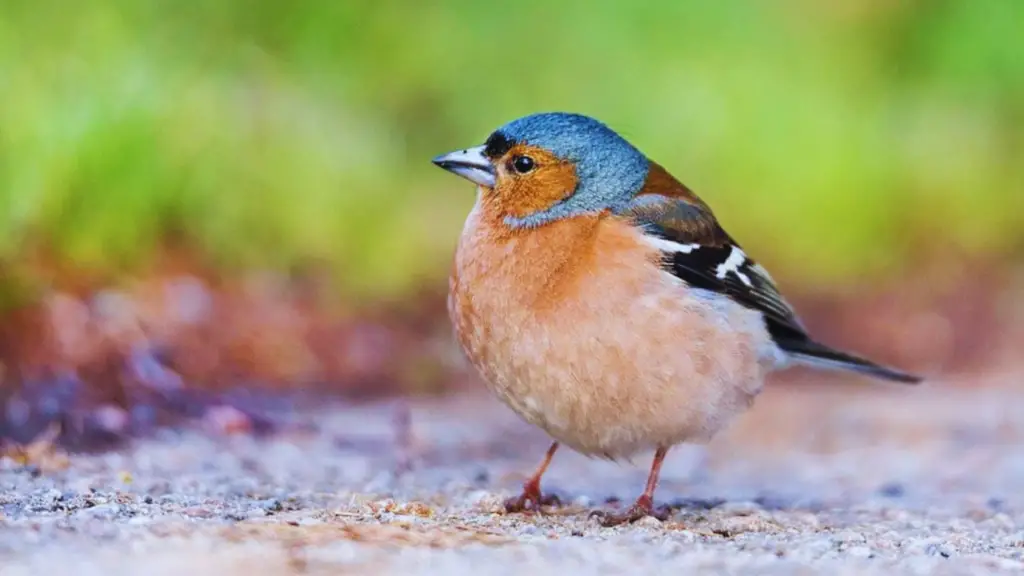
Seeds are the go-to food for finches, serving as the foundation of their diets. These tiny birds have a finicky appetite and prefer a variety of seeds to meet their nutritional needs. Here’s a gourmet guide to the seeds that will keep your finches happy and healthy:
- Nyjer seeds: These small, black seeds are a favorite among finches, especially the American goldfinch. They are high in fat and protein, providing the energy needed for their active lifestyles.
- Sunflower seeds: Finches love the crunch and flavor of sunflower seeds. Black-oil sunflower seeds are the most popular choice, as they have a higher oil content and are easier for finches to crack open.
- Millet seeds: Millet is a staple in many finch seed mixes. It comes in various colors, including red, yellow, and white. Finches enjoy pecking at the tiny millet seeds, which provide them with carbohydrates and essential nutrients.
In addition to these seeds, finches also enjoy other types of seeds, such as safflower seeds, canary seeds, and hemp seeds. Offering a variety of seeds will not only keep your finches satisfied but also ensure they receive a well-rounded diet. Remember to provide fresh seeds regularly and clean out any uneaten or spoiled seeds to keep your finches healthy and happy.
Fresh Fruits and Vegetables for Finches
When it comes to keeping your finches healthy and happy, you’ll be amazed at the benefits of adding fresh fruits and vegetables to their diet. While seeds are the staple of their diets, introducing a variety of fresh produce can provide them with essential nutrients and keep them excited about mealtime.
Finches enjoy a wide range of fruits and vegetables. Some popular choices include apples, pears, strawberries, blueberries, oranges, and bananas. These fruits provide natural sugars and vitamins that can boost their immune system and promote overall well-being. Just make sure to cut the fruits into small, manageable pieces to prevent choking hazards.
Vegetables are also a great addition to a finch’s diet. Leafy greens like spinach and kale are rich in vitamins A and C, which can enhance their plumage and keep their feathers shiny. Other vegetables like carrots, broccoli, and bell peppers offer additional nutrients and provide a crunchy texture that finches love.
Remember to wash all fruits and vegetables thoroughly before serving them to your finches. Remove any seeds, pits, or stems that could pose a choking hazard. It’s also important to introduce new foods gradually to avoid digestive issues.
By offering a variety of fresh produce, you’ll not only enhance their nutrition but also provide a stimulating dining experience for your finches.
Protein-Rich Foods for Finch Health
If you want to ensure the health of your finches, it’s important to provide them with protein-rich foods. Insects and mealworms are a great source of protein for finches, and they will love the opportunity to hunt and peck at them.
Boiled eggs and egg food are also excellent options, as they are packed with nutrients and easy to digest.
Lastly, high-quality pellets and supplements can provide a balanced diet and fill in any nutritional gaps.
Insects and Mealworms
To satisfy their finicky appetites, finches like to feast on insects and mealworms, buzzing and wriggling in their beaks. These protein-rich foods are essential for their overall health and well-being.
Insects provide a natural source of nutrients that help finches maintain their energy levels and support their growth. Mealworms, in particular, are a favorite among finches due to their high protein content. These tiny creatures are packed with amino acids, vitamins, and minerals that are crucial for the finches’ development and immune system function.
Feeding finches a diet that includes insects and mealworms not only meets their nutritional needs but also stimulates their natural foraging behavior. So, if you want to keep your finches happy and healthy, make sure to include these tasty treats in their diet.
Boiled Eggs and Egg Food
Now that you know about the benefits of insects and mealworms for finches, let’s talk about another delicious option for your feathered friends – boiled eggs and egg food.
Finches absolutely love the protein-packed goodness of eggs, and it’s a great way to provide them with a nutritious treat. Boiled eggs can be mashed and mixed with other ingredients to create a delectable egg food mixture that finches will devour. This mixture can include things like grated carrots, finely chopped greens, and even a sprinkle of millet.
To grab your attention, here are four mouthwatering ideas to include in your finch’s egg food:
- Chopped broccoli for added crunch and vitamins.
- A dash of spirulina powder for a nutritional boost.
- Finely grated apple for a touch of sweetness.
- A sprinkle of crushed dried mealworms for extra protein.
Your finches will be singing with delight when you offer them this gourmet egg feast!
High-Quality Pellets and Supplements
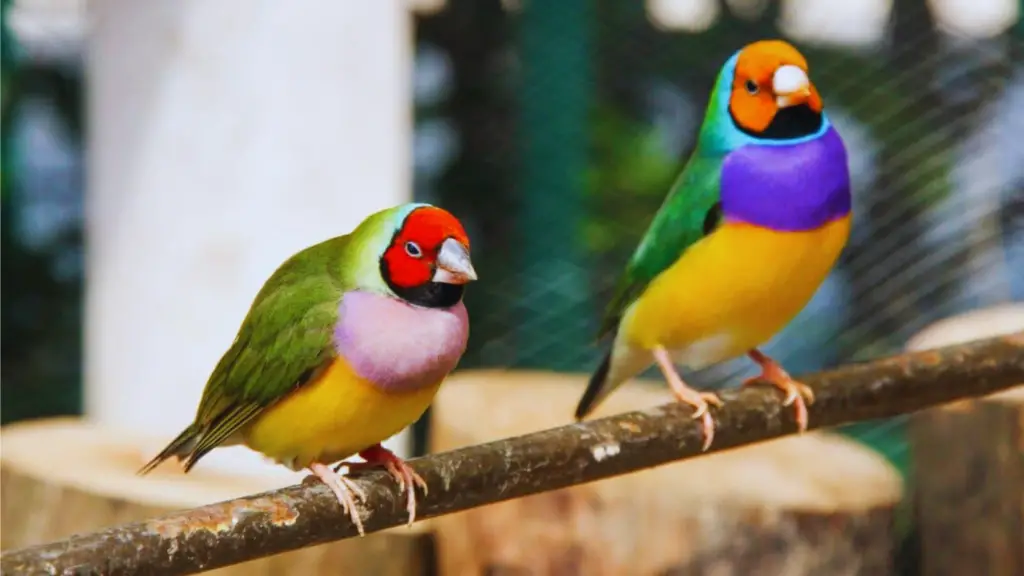
Introducing high-quality pellets and supplements to your finches’ diets can greatly enhance their overall health and well-being. High-quality pellets are specially formulated to provide a balanced diet, containing essential nutrients and vitamins that may be lacking in other foods. They are made from a variety of ingredients such as seeds, grains, fruits, and vegetables, ensuring a diverse and nutritious meal for your finches.
Supplements can also be beneficial in meeting specific dietary needs or addressing any deficiencies. For example, calcium supplements can support bone health, while omega-3 fatty acid supplements can improve feather quality.
By incorporating high-quality pellets and supplements into their diet, you can ensure that your finches are receiving the necessary nutrients for optimal health and longevity.
Nectar and Sweet Treats for Finches
Given their finicky appetites, finches relish indulging in nectar and sweet treats to satisfy their delicate palates. While finches primarily feed on seeds and insects, incorporating nectar and sweet treats into their diet can provide them with additional nutrients and variety.
Nectar is a sweet liquid that can be obtained from flowers or purchased in stores. It is a favorite among many finch species, such as hummingbirds and sunbirds. Offering nectar in feeders specifically designed for finches will attract them to your garden or backyard.
Sweet treats, such as fruits and berries, can also be given to finches as occasional treats. These treats provide natural sugars and vitamins that can supplement their diet. It is important to remember that nectar and sweet treats should not be the primary source of nutrition for finches, as they still need a balanced diet of seeds and insects.
However, incorporating these tasty delights into their feeding routine can add excitement and enjoyment to their daily meals. Overall, offering nectar and sweet treats to your finches can help keep them happy and satisfied, while ensuring they receive a well-rounded diet.
Water: Essential for Finch Well-Being
Water is a crucial element for the overall well-being of our feathered friends. Just like humans, finches need water to survive and thrive. It is important to provide clean and fresh water for your finches every day. Here are some key reasons why water is essential for finch well-being:
- Hydration: Water is vital for finches to stay hydrated. It helps regulate their body temperature and aids in digestion. Make sure to provide a shallow dish of water that is easily accessible for your finches.
- Bathing: Finches love to bathe! Water baths help them keep their feathers clean and healthy. Watching finches splash around in the water can be a delight for bird enthusiasts.
- Feather maintenance: Finches use water to preen their feathers. Preening helps keep their feathers aligned, which is important for insulation and flight. By providing water, you are allowing your finches to take care of their plumage.
- Health and vitality: Adequate water intake is crucial for the overall health and vitality of finches. It supports their immune system, digestion, and overall well-being.
Remember, water is as important as food for your finches. By ensuring they have a constant supply of clean water, you are contributing to their happiness and health. So, keep those water dishes filled and watch your finches thrive!
Avoiding Harmful Foods and Substances
To keep your feathered friends healthy, it’s important to be mindful of the foods and substances that may be harmful to them. You wouldn’t want to accidentally feed them something that could make them sick, right? While finches have a wide variety of foods they can enjoy, there are certain items that should be avoided to ensure their well-being.
First and foremost, never give your finches any foods that are high in salt. This includes salty snacks like chips or pretzels. Finches have a delicate balance of electrolytes in their bodies, and too much salt can throw that balance off, leading to dehydration and other health issues.
Additionally, avoid feeding them any sugary foods or drinks. Just like with humans, excessive sugar can lead to weight gain and diabetes in finches.
It’s also important to steer clear of toxic plants and substances. Some common household plants, like lilies or poinsettias, can be toxic to finches if ingested. Make sure to research any plants you have in your home or yard to ensure they are safe for your feathered friends.
Finally, be cautious with cleaning products and pesticides. These chemicals can be harmful if your finches come into contact with them, so always keep them out of reach.
By being mindful of what you feed your finches and avoiding harmful substances, you can ensure their health and happiness.
Feeding Tips and Techniques
When it comes to feeding your finches, there are a few key points to keep in mind.
First, it’s important to observe their feeding habits to understand their preferences and ensure they are getting the right nutrients.
Secondly, establishing a feeding schedule and routine can help maintain their appetite and prevent overeating.
Lastly, monitoring their weight and overall health is crucial to ensure they are thriving and not experiencing any health issues.
Observing Finch Feeding Habits
Watching finches feed can be a delightful and mesmerizing experience, as they peck at seeds with precision and grace. To truly understand their feeding habits, it’s important to observe them closely.
Here are some key observations to make:
- Time of day: Notice when finches are most active in search of food. They tend to feed more actively in the early morning and late afternoon.
- Feeding preferences: Pay attention to the types of seeds they prefer. Finches have a particular fondness for nyjer, sunflower, and millet seeds.
- Social behavior: Observe how finches interact while feeding. They often feed in flocks, taking turns at the feeder and communicating through chirps and body language.
By observing these habits, you can gain valuable insights into what finches eat and how they behave while feeding.
So grab a cup of coffee, find a comfortable spot, and enjoy the show!
Feeding Schedule and Routine
Now that you’ve observed the finches’ feeding habits, let’s dive into their feeding schedule and routine. Understanding their routine is essential in keeping these finicky eaters happy and healthy.
Finches are early risers, starting their day with a hearty breakfast. They prefer to have their food readily available in the morning, so make sure their feeding area is well-stocked.
Throughout the day, they enjoy small, frequent meals. Keep an eye on their food levels and refill as needed. Remember, variety is key! Offer a mix of seeds, fruits, and vegetables to cater to their diverse palate.
Don’t forget to provide fresh water daily, as finches need it to stay hydrated. By establishing a consistent feeding schedule and offering a range of delectable options, you’ll keep your finches content and satisfied.
Monitoring Finch Weight and Health
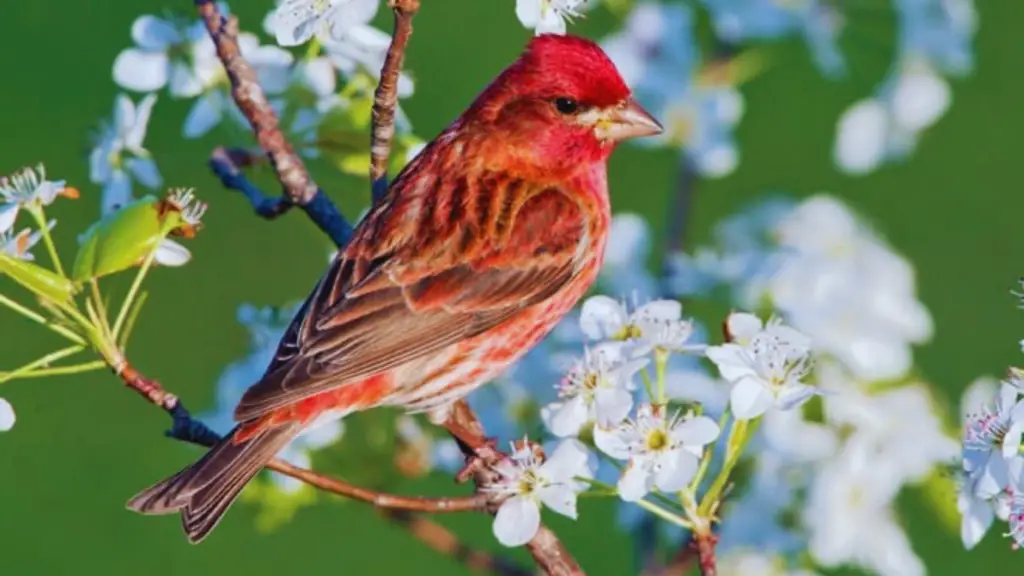
To ensure your finches stay healthy and happy, it’s important to keep a close eye on their weight and overall well-being, just like a diligent caretaker monitoring a delicate garden.
Regularly monitoring their weight can help you identify any fluctuations that may indicate health issues. Use a small scale designed for weighing birds and record their weight once a week.
Additionally, observe their behavior and look for signs of distress or abnormalities. Keep an eye out for changes in appetite, feather condition, or droppings.
If you notice any concerning changes, consult a veterinarian who specializes in avian care.
Remember, prevention is key, so providing a balanced diet, clean water, and a clean environment will contribute to your finches’ health and happiness.
Troubleshooting Finch Feeding Issues
Are you having trouble with your finch not eating or overeating? In this discussion, we will explore some strategies to address picky eating habits in finches.
If the issue persists, it may be necessary to seek veterinary advice to ensure the health and well-being of your finch.
Finch Not Eating or Overeating
to their diet
- Provide plenty of toys and perches
- Encourage regular exercise
- Consult with a veterinarian if necessary
Remember, maintaining a balanced diet and monitoring your finch’s eating habits are essential for their overall health and well-being.
Addressing Picky Eating Habits
If you’ve been struggling with your finch’s eating habits, don’t worry, you’re not alone. Addressing picky eating habits is a common challenge among finch owners. These little birds can be quite finicky when it comes to their food preferences.
However, there are several strategies you can try to encourage your finch to eat a balanced diet. Firstly, offer a variety of foods to cater to their ever-changing tastes. Finches are known to get bored easily, so switching up their menu regularly can entice them to try new things.
Additionally, try providing different textures and forms of food, such as seeds, fresh fruits, and vegetables, to keep their interest piqued. Remember, patience is key when dealing with a picky eater. With time and persistence, you’ll find a combination that your finch just can’t resist.
Seeking Veterinary Advice
When it comes to the health and well-being of your beloved finch, there’s no better option than seeking veterinary advice. A qualified veterinarian can provide valuable guidance on proper nutrition, potential health issues, and preventive care. They can also address any concerns you may have about your finch’s picky eating habits. By consulting a professional, you can ensure that your feathered friend receives the best possible care and attention.
To illustrate the importance of veterinary advice, here’s a table highlighting common health issues in finches and their corresponding symptoms:
| Health Issue | Symptoms | Treatment |
|---|---|---|
| Malnutrition | Weight loss, dull feathers | Adjust diet, provide nutritional supplements |
| Respiratory infection | Sneezing, wheezing | Antibiotics, proper ventilation |
| Feather plucking | Bald patches, irritated skin | Identify underlying cause, behavioral therapy |
| Parasites | Itching, feather damage | Medication, proper hygiene |
Remember, a veterinarian is your finch’s best ally in maintaining optimal health. Don’t hesitate to seek their professional advice when needed.
Keeping Your Finches Happy and Healthy
To ensure the happiness and wellbeing of your finches, it’s crucial to provide them with a varied and nutritious diet. Finches have finicky appetites and require a specific blend of seeds, fruits, and vegetables to thrive. By offering a diverse range of foods, you will not only keep your finches happy, but you will also promote their overall health.
In addition to their main diet of seeds, it’s important to supplement your finches’ meals with fresh fruits and vegetables. Options such as apples, bananas, carrots, and leafy greens like spinach or kale can provide essential vitamins and minerals that may be lacking in their seed mix.
Another key aspect of keeping your finches healthy is ensuring they have access to clean water at all times. It’s important to change their water daily and provide it in a shallow dish that they can easily access.
Lastly, it’s important to monitor your finches’ behavior and physical appearance regularly. This will allow you to identify any potential health issues early on and seek veterinary advice if needed. Regular check-ups with an avian veterinarian are also recommended to ensure your finches receive proper medical care.
By following these guidelines and providing a varied and nutritious diet, you can ensure the happiness and longevity of your finches. Enjoy observing their vibrant colors and cheerful chirping as they thrive in their finch-friendly environment.
What Do Finches Eat: Frequently Asked Questions
How long can finches survive without eating?
Finches can survive without eating for up to 48 hours, but it’s like asking a bird to fly with clipped wings. Their survival instincts kick in, but it’s not a comfortable or sustainable situation.
Can finches eat bread or crackers?
Finches can eat bread or crackers occasionally, but it should not be a major part of their diet. These treats should be given in small amounts as they don’t provide the necessary nutrients for their overall health.
How often should I change the water in the finch’s water dish?
You should change the water in the finch’s dish daily to ensure it stays clean and fresh. This helps to prevent bacteria growth and keeps your finch healthy and hydrated.
Are there any foods that can help finches with feather regrowth?
To help finches with feather regrowth, add nutrient-rich foods like leafy greens and high-protein treats to their diet. These will provide the necessary vitamins and minerals, promoting healthy feathers and helping them look their best.
What are some signs that my finch is not getting enough nutrients in its diet?
Signs that your finch is not getting enough nutrients in its diet include weight loss, lethargy, dull feathers, and decreased activity. Make sure to provide a balanced diet to keep your finch healthy and thriving.
Conclusion: What Do Finches Eat?
Congratulations on completing the gourmet guide to finch cuisine! By understanding the delicate palates of these feathered connoisseurs, you have unlocked the key to keeping your finches happy and healthy.
Like the sweet melody of a bird’s song, their diet is a symphony of seeds, fresh fruits, vegetables, and protein-rich foods. Remember to avoid harmful substances, just as the finch avoids a thorny branch.
With these feeding tips and techniques, you will be the maestro of finch nutrition, creating a harmonious feast for your fine-feathered friends.

